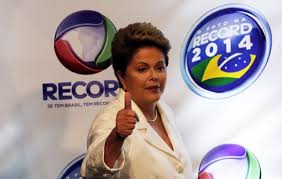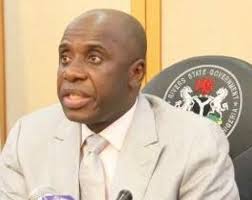Brazil’s President and Workers’ Party (PT) presidential candidate Dilma
(Reuters) – President Dilma Rousseff is gaining momentum but remains locked in a dead heat with challenger Aecio Neves ahead of Sunday’s runoff to Brazil’s presidential election, a survey by pollster MDA showed on Monday.
Pro-business candidate Neves had retained a slight but statistically insignificant lead over leftist Rousseff since the first round of elections on Oct. 5, according to surveys by the more closely watched Ibope and Datafolha pollsters.
Since then, the presidential race has turned increasingly ugly as the candidates scramble for undecided voters. They have swapped accusations of corruption and economic mismanagement in heated televised debates over the past few days in what is shaping up to be Brazil’s tightest election in decades.
The MDA survey, its first since the election’s first round, showed Rousseff with 45.5 percent of voter support versus 44.5 percent for Neves. The difference between the two remains within the poll’s margin of error.
Excluding undecided voters, spoiled and blank survey responses, Rousseff had 50.5 percent against 49.5 percent for Neves, a senator and former state governor.
Brazil’s currency and stock markets extended losses after the poll showed Neves, an investor favorite from the centrist Brazilian Social Democracy Party, losing momentum.
Brazilian markets have been extremely volatile throughout the campaign, surging with each poll favoring Neves and slumping with surveys that show Rousseff gaining ground. After four years of sluggish growth and heavy-handed economic policies under Rousseff, investors are eager for a new government.
REJECTION RATE
Monday’s poll echoed indications in the last Datafolha survey that Rousseff could pull ahead because the rejection rate of Neves is climbing.
The MDA survey showed both candidates now have nearly the same rejection rate, as 40.7 percent said they would never vote for Rousseff while 41.0 percent said they would never back Neves.
Still, many analysts have been taking opinion polls with a grain of salt since they failed to accurately gauge the extent of Neves’ surge in voter support on the eve of the first round.
Many investors blame Rousseff’s policies for tipping Latin America’s largest economy into recession and damaging state-run companies such as oil producer Petrobras and lender Banco do Brasil.
While Neves promises to switch to a more business-friendly model to boost economic growth, Rousseff pledges to build on policies that have lifted millions from poverty since her predecessor and mentor Luiz Inacio Lula da Silva first took office in 2003.
Rousseff won the first-round vote with 41.6 percent versus 33.6 percent for Neves, a difference of 8 million votes. Neves was endorsed a week ago by Marina Silva, a popular environmentalist who placed third with 22 million votes.
MDA interviewed 2,002 voters over the weekend in a poll commissioned by the transport lobby CNT. The poll’s margin of error is 2.2 percentage points in either direction.














